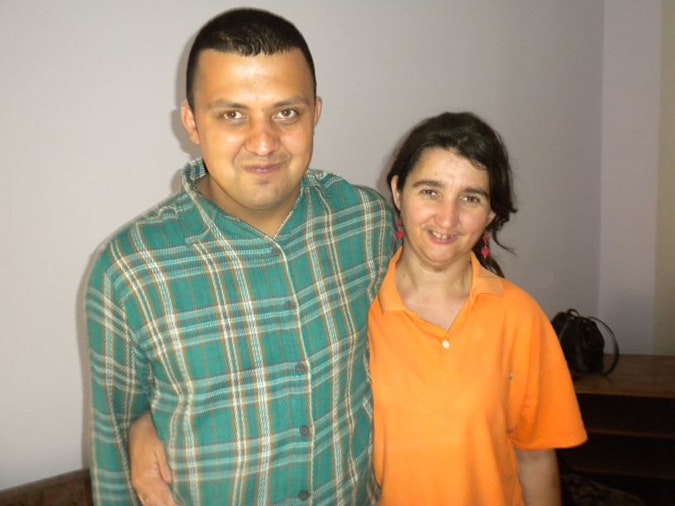Better Lives, Fewer Institutions
By Judith Klein

“Minus 4 in institutions” read the subject line in a recent email I received from our partners in Novi Sad, Serbia. I did a double take. Minus 4: What a wonderful way to say that a new home in the community has opened for four people who got the chance—finally—to leave a long-stay residential institution. They finally get to unpack their things and put them into cupboards that aren’t locked, they can finally make their own dinner with food they have chosen, they can finally go to bed when they are tired, not when it’s time for "lights out," they can finally talk about what their lives were like in the institution without the fear of punishment for doing so.
It is the small things, the everyday details that most of us take for granted about how we live each day—what we choose to do or not do, what to eat, who to meet with, what decisions to make. These everyday choices are not available to people who live in institutions, and it is truly life changing to be able to make them—especially when you finally get the opportunity to truly exist as an adult, having spent years, often decades, behind the gates of a total institution.
In the 15 years that I’ve been working to get people out of institutions, or preventing them from ever having to enter them, I’ve become more ambitious. If we can get 10 people out, why not try to close a whole institution and improve hundreds of lives, changing the entire system in the process?
This goal was my motivation for negotiating with the government in Belgrade in 2005, negotiations that led to the signing of a Memorandum of Understanding with the Ministry of Labor, Employment and Social Policy in 2006. It was a grand plan: we were to partner with the Ministry in establishing community-based housing throughout Serbia for people with mental disabilities. The Ministry committed to financing the purchase of 130 homes across the country for this purpose. The Open Society Institute would cover the operating costs until the Ministry developed the financing mechanisms to take over. About 650 people would have been freed and would have gotten the chance to begin new lives.
It was a plan that failed. Politics got in the way. There were election campaigns to finance, and the money for the 130 homes disappeared. It was an extraordinary disappointment. We could have changed the landscape in the whole country, but it fell flat. In the light of what we hoped to achieve, getting four people out of an institution seemed to be less important than the dream of freeing hundreds.
I have been reminded, once again, how incredibly important every person is. How everyone is an individual with his or her own hopes and dreams. My partners in Novi Sad wrote to me yesterday announcing: "A lot of great things have been happening here in Novi Sad in the last few days. Dusica, Mirko, Dragica, and Joca left [the institution] and moved into their new home in Novi Sad." There were photos to go along with the email. Photos of four people with new lives. Photos of "minus 4" people in institutions. Now that is truly something to celebrate.
Until March 2019, Judith Klein was a senior adviser to the Open Society Public Health Program.